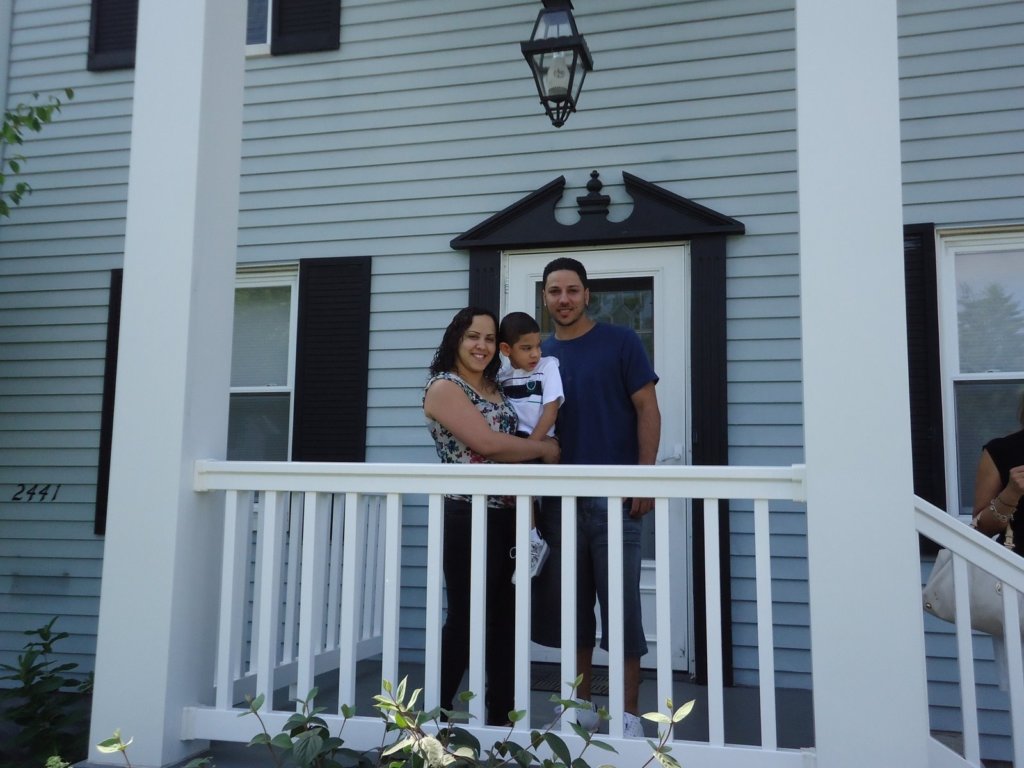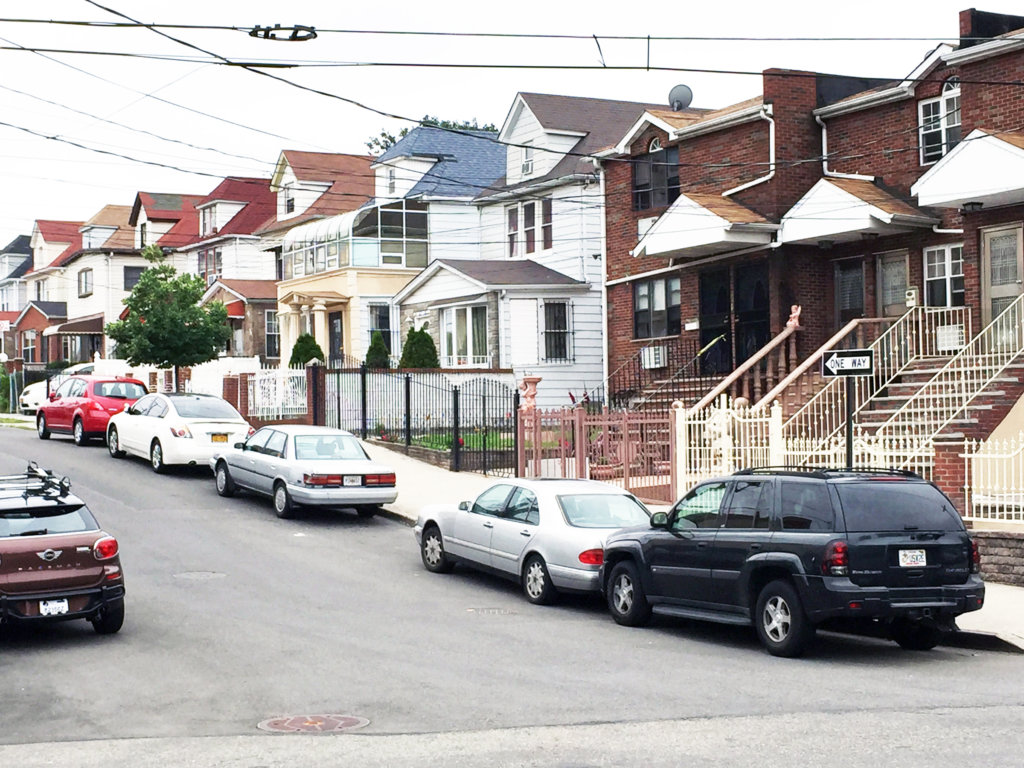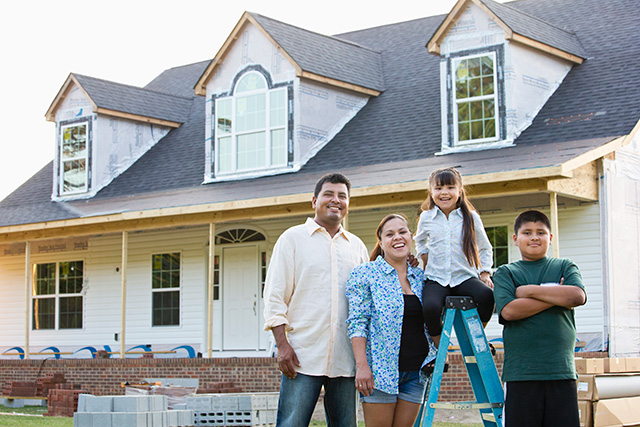Comment now against HUD’s proposed rule that threatens to evict 55,000 children from their homes
July 9 marks the deadline to submit public comments on the Department of Housing and Urban Development’s (HUD) proposed rule that would prohibit mixed-status families from living in public housing and receiving rental assistance, such as housing choice vouchers. UnidosUS strongly opposes the proposed rule, which, as Senior Policy Advisor Carlos Guevara states, “has a singular purpose, and that is to sow fear and division and create confusion in our communities. HUD should be focusing on reducing homelessness, not increasing it.”

UnidosUS has prepared a comment letter to oppose the new HUD rule that would prohibit mixed-status families from living in public housing and participating in federal rental assistance programs, such as Section 8. Mixed-status families include at least one member who is ineligible for housing assistance based on immigration status.
Keep up with the latest from UnidosUS
Sign up for the weekly UnidosUS Action Network newsletter delivered every Thursday.
Individuals and organizations can use the templates found at the link below to submit their own comment:
- Download a template for an individual comment here
- Download a template for an organization’s comment here
“Ineligible” does not equal “undocumented”: immigrants can have legal status and still be ineligible for housing assistance. According to a recent analysis of HUD administrative data presented on a webinar via #KeepFamiliesTogether, 85% of the families who would be impacted by this rule are Latino. We’re calling on our community to express their opinion on this rule.
You can use the templates above to state how this rule would affect your community, and/or relate experiences with the issue. You can learn more about this issue on this microsite from our partners at The National Housing Law Project and the National Low Income Housing Coalition. Add your voice to the discussion by submitting your comment here by July 9.
What is the New HUD Proposed Rule About?
Millions of Americans are on waiting lists to receive housing assistance, but the proposed HUD rule won’t solve this issue. Agatha So, UnidosUS Policy Analyst in the Economic Policy Project, says that evicting mixed-status families does not fix the housing crisis: “It is simply another threat and attack on immigrant families.”
After the Great Recession, “homeownership remains out of reach for many Latinos, evidenced by the challenges in reaching pre-recession levels, families have been pushed into expensive rental markets—further limiting their ability to save for a home,” according to a recent UnidosUS report, Latinos and the Great Recession: 10 Years of Economic Loss and Recovery. This crisis makes federal housing assistance even more critical for Latino families trying to afford a rental home.
While Americans across the nation are struggling to find affordable housing, HUD’s proposal would not address the concerns underlying those challenges—like narrowing the gap between stagnant wages and rising housing costs—but instead appears to be intent on deepening fear and confusion among Latino and immigrant communities.

The threat of eviction imposes a difficult choice on American families: ripping a child or family member from a caregiver or breadwinner to avoid losing critical housing assistance, or facing eviction as a family. We believe that the goal of this rule is, at a minimum, to intimidate eligible families from accessing housing assistance; worse yet, the rule appears to threaten information sharing with immigration authorities.
Most significantly, the HUD proposal would harm some of the most vulnerable members of our communities: children living in poverty. According to HUD’s own analysis, this rule could impact at least 55,000 U.S. citizen or legal resident children who are eligible for housing assistance, and place them with their families on a dangerous path to housing insecurity and even homelessness.
HUD regulators also note that “there are less costly alternatives” to enforcing assistance eligibility. Such alternatives would avoid the $4.4 million cost to U.S. taxpayers for evicting vulnerable families and American children, as well as prevent HUD from needing to reduce average housing assistance for all households or reducing the number of households served.
Keeping an Eye on the Big Picture
This proposed rule “is another example of how this administration is intent on disrupting family unity, and part of a larger pattern and practice of putting millions American children in harm’s way. Pushing children into homelessness, as this proposed rule would, is simply indefensible,” Guevara says. This proposed measure is one in a line of enforcement policies that the administration is putting in place and enacting, threatening to separate nearly six million American children from their family members, as our report Beyond the Border: Family Separation in the Trump Era argues.
This report analyzes the long-term impact the administration anti-immigrant policies will have on U.S. children in terms of their economic, health, education, and safety outlooks, considering that, by some estimates, between 4.1 million and 5.7 million U.S.-citizen children live with an undocumented resident.
- On the economic front, data suggests that Latino households are more vulnerable to sudden financial emergencies and housing instability than other groups. These vulnerabilities increase with the detention or deportation of a breadwinner or caregiver.
- To the detriment of the health of many children, the fear of personal information being shared is one significant concern leading fewer eligible people to participate in the Supplemental Nutrition Assistance Program (SNAP) and the Children’s Health Insurance Program (CHIP).
- When it comes to education, children of detained or deported parents are at higher risk of depression and anxiety, emotional problems, negative self-esteem, attention disorders, speech delay, and low school performance. The current immigration environment is contributing to high levels of absenteeism among students who are immigrants or U.S.-born children of immigrants.
- On safety outlooks, Latinos are less likely to report crimes amid concerns that interacting with the police or testifying in court could subject them or someone in their family to ICE enforcement. This makes Latinos more likely to be the targets of crimes as well.
And, as we’ve argued, these policies are counterproductive to the national interest. The children at risk by this and similar policies are the nation’s future voters, parents, taxpayers, and workers, essential members to the long-term vitality of the United States. As UnidosUS President and CEO Janet Murguía stated in a recent op-ed in The New York Times, “the consequences for the children who remain could be devastating: causing permanent, irreparable harm that will play out for years to come.”


